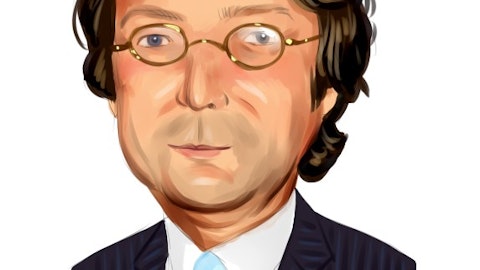
The fund has steadily been trimming its position in Heinz over the past two years; as of the beginning of 2010, Trian had about 5 million shares of Heinz, a position that was actually larger earlier in 2009 and 2008. Though Trian is passing on the Heinz, it is still eating up Wendy’s (NASDAQ:WEN) shares (you can view Trian’s holdings here). What’s up with Peltz’s move on Heinz?
Heinz, which is also owned by Bernard Horn, Jim Simons, and Richard Schimel, has a 60 percent market share in the sauces and condiments market, which comprises the bulk of its business. As presented in its annual report, over the past five fiscal years, the company’s shareholders have seen a 46 percent return on investment, three times the return of the broader S&P 500. And the company continues to grow its dividend, which presently maintains an annual yield of 3.7 percent.
Here’s my major concern with Heinz going forward: domestic commodity prices. To take but one example, take a look at the ingredients in Heinz ketchup (the regular one, not the “simply Heinz” version), and you’ll find some ingredients like tomatoes (duh) and corn syrup (high fructose and regular). Many of Heinz’s products contain corn syrup, as with nearly any sweetened packaged product in the United States. Corn prices have soared 50 percent over the past six weeks, which is up 20.5 percent year-over-year as this year’s crops suffer from a severe drought.
There are some mitigating factors to this issue, such as Heinz’s 30.7 percent increase year-over-year in emerging market sales for the first quarter 2012. This is partially offset by a stronger dollar year-over-year, with the U.S. Dollar index up 12 percent year over year. This is a source of friction for earnings. Heinz has a pretty broad-based set of goods, but, again, many of them contain corn or soy (soybeans are also up 26 percent year-over-year).
So I think Peltz’ sale makes sense. That said, Trian has only had a passive stake in Heinz as of late. Hedge funds have a portfolio of “passive” stakes in companies they believe are undervalued in order to shore-up capital, which in turn allows them to initiate their game-changing “active” stakes when the time is right. With shares trading at 19 times their 12-month trailing earnings, Heinz is trading towards the top of its five-year P/E range of around 13 to 20. So Peltz is probably figuring that pricing pressures stemming from both a drought and general food price inflation, taken along with historically expensive share prices, make Heinz a relatively unattractive passive position for the fund.
Of course, Heinz does a good business and did very well at resisting the market slowdown in October of last year, as well as outperforming during the Great Recession. The quality of its business has some level of independence in respect to the broader market, with a beta of around 0.55. For income investors, Heinz is an interesting investment idea with its long-term expansion plans and commitment to increasing its dividend.
On a side note, Trian also holds about 12 million shares of Kraft (NASDAQ:KFT) as of March 31, making Kraft its third largest holding. This stock made a boat-load of cash for hedge fund star Bill Ackman over the past couple of years, though he recently cut his position in Kraft. I think Peltz is holding Kraft as a special situations play. Kraft is planning to spin-off its strangely-named Mondelez (to be traded under ticker MDLZ), which will consolidate the world-wide snackfood operations of Kraft into a single company. This will lead to a new valuation of the underlying assets and more agile expansion into emerging markets.




